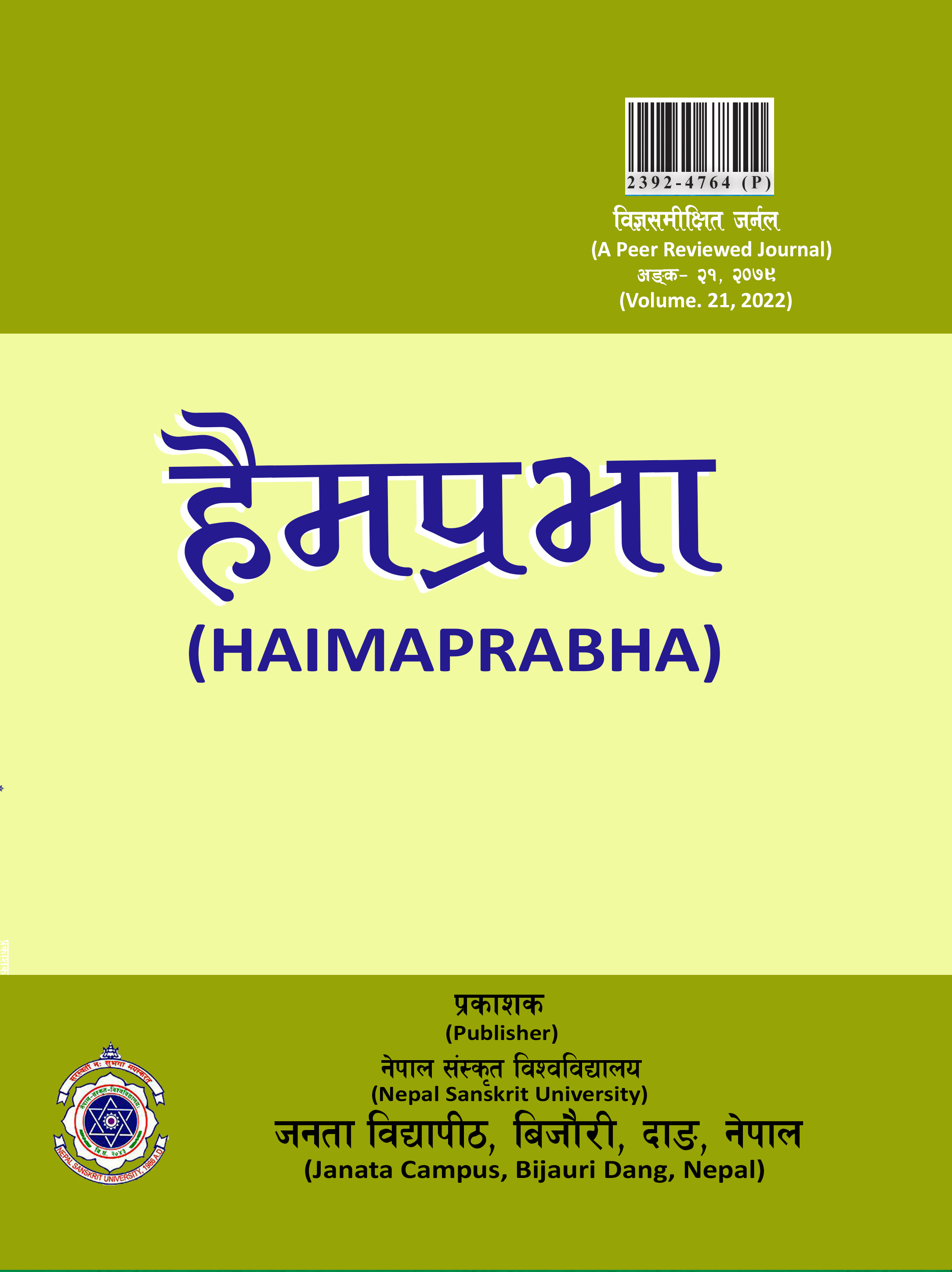Paternalistic Colonialism in William Hodges’ Travels in India
DOI:
https://doi.org/10.3126/haimaprabha.v21i01.44829Keywords:
benevolent, paintings, travelogue, ruin, British governmentAbstract
This paper seeks to discuss the idea of paternalistic colonialism in William Hodges’ travelogue, Travels in India. This idea adheres to the discourse in which actions and decisions are made for another person or group with the intention of benefitting them. By executing the critical idea, “Paternalism” advanced by Nicholas Cornell and Fiona Robinson, this researcher draws the conclusion that Hodges, here, stands for an altruistic colonial rule that can set India’s destiny. By placing spotlight on ruinous lands and landscapes, the writer makes an attempt to appropriate the presence of British Empire therein for the reconstruction of India. It is thugh the rhetoric of ruin, he strives to justify the British colonialism in India as an inevitable force for the overall development of the country. He favors the glorious presence of British government as a passport to transform the ignominious destiny of India and Indians. By critically analyzing Hodges’ recurrent emphasis on the presence of British government in order for India to take a gigantic leap from rags to riches, this article gives sustained attention to argue that the writer is in favor of paternalistic colonialism.
Downloads
Downloads
Published
How to Cite
Issue
Section
License

This work is licensed under a Creative Commons Attribution 4.0 International License.
© Nepal Sanskrit University, Janata Campus, RMC, Bijauri Dang, Nepal

